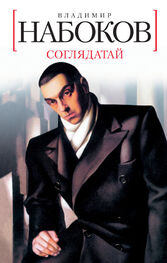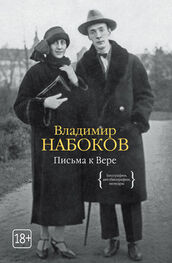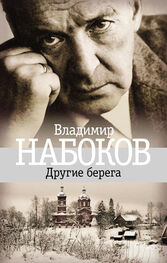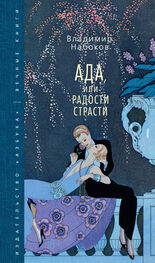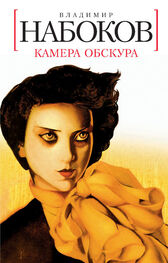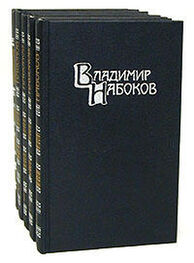‘Dummy-mum’ — (laughing). ‘Angels, too, have brooms — to sweep one’s soul clear of horrible images. My black nurse was Swiss-laced with white whimsies.’
Sudden ice hurtling down the rain pipe: brokenhearted stalactite.
Recorded and replayed in their joint memory was their early preoccupation with the strange idea of death. There is one exchange that it would be nice to enact against the green moving backdrop of one of our Ardis sets. The talk about ‘double guarantee’ in eternity. Start just before that.
‘I know there’s a Van in Nirvana. I’ll be with him in the depths moego ada, of my Hades,’ said Ada.
‘True, true’ (bird-effects here, and acquiescing branches, and what you used to call ‘golden gouts’).
‘As lovers and siblings,’ she cried, ‘we have a double chance of being together in eternity, in terrarity. Four pairs of eyes in paradise!’
‘Neat, neat,’ said Van.
Something of the sort. One great difficulty. The strange mirage-shimmer standing in for death should not appear too soon in the chronicle and yet it should permeate the first amorous scenes. Hard but not insurmountable (I can do anything, I can tango and tap-dance on my fantastic hands). By the way, who dies first?
Ada. Van. Ada. Vaniada. Nobody. Each hoped to go first, so as to concede, by implication, a longer life to the other, and each wished to go last, in order to spare the other the anguish or worries, of widowhood. One solution would be for you to marry Violet.
‘Thank you. J’ai tâté de deux tribades dans ma vie, ça suffit. Dear Emile says "terme qu’on évite d’employer." How right he is!’
‘If not Violet, then a local Gauguin girl. Or Yolande Kickshaw.’
Why? Good question. Anyway. Violet must not be given this part to type. I’m afraid we’re going to wound a lot of people (openwork American lilt)! Oh come, art cannot hurt. It can, and how!
Actually the question of mortal precedence has now hardly any importance. I mean, the hero and heroine should get so close to each other by the time the horror begins, so organically close, that they overlap, intergrade, interache, and even if Vaniada’s end is described in the epilogue we, writers and readers, should be unable to make out (myopic, myopic) who exactly survives, Dava or Vada, Anda or Vanda.
I had a schoolmate called Vanda. And I knew a girl called Adora, little thing in my last floramor. What makes me see that bit as the purest sanglot in the book? What is the worst part of dying?
For you realize there are three facets to it (roughly corresponding to the popular tripartition of Time). There is, first, the wrench of relinquishing forever all one’s memories — that’s a commonplace, but what courage man must have had to go through that commonplace again and again and not give up the rigmarole of accumulating again and again the riches of consciousness that will be snatched away! Then we have the second facet — the hideous physical pain — for obvious reasons let us not dwell upon that. And finally, there is the featureless pseudo-future, blank and black, an everlasting nonlastingness, the crowning paradox of our boxed brain’s eschatologies!
‘Yes,’ said Ada (aged eleven and a great hair-tosser), ‘yes — but take a paralytic who forgets the entire past gradually, stroke by stroke, who dies in his sleep like a good boy, and who has believed all his life that the soul is immortal — isn’t that desirable, isn’t that a quite comfortable arrangement?’
‘Cold comfort,’ said Van (aged fourteen and dying of other desires). ‘You lose your immortality when you lose your memory. And if you land then on Terra Caelestis, with your pillow and chamberpot, you are made to room not with Shakespeare or even Longfellow, but with guitarists and cretins.’
She insisted that if there were no future, then one had the right of making up a future, and in that case one’s very own future did exist, insofar as one existed oneself. Eighty years quickly passed — a matter of changing a slide in a magic lantern. They had spent most of the morning reworking their translation of a passage (lines 569–572) in John Shade’s famous poem:
…Sovetï mï dayom
Kak bït’ vdovtsu: on poteryal dvuh zhyon;
On ih vstrechaet — lyubyashchih, lyubimïh,
Revnuyushchih ego drug k druzhke…
(…We give advice
To widower. He has been married twice:
He meets his wives, both loved, both loving, both
Jealous of one another…)
Van pointed out that here was the rub — one is free to imagine any type of hereafter, of course: the generalized paradise promised by Oriental prophets and poets, or an individual combination; but the work of fancy is handicapped — to a quite hopeless extent — by a logical ban: you cannot bring your friends along — or your enemies for that matter — to the party. The transposition of all our remembered relationships into an Elysian life inevitably turns it into a second-rate continuation of our marvelous mortality. Only a Chinaman or a retarded child can imagine being met, in that Next-Installment World, to the accompaniment of all sorts of tail-wagging and groveling of welcome, by the mosquito executed eighty years ago upon one’s bare leg, which has been amputated since then and now, in the wake of the gesticulating mosquito, comes back, stomp, stomp, stomp, here I am, stick me on.
She did not laugh; she repeated to herself the verses that had given them such trouble. The Signy brain-shrinkers would gleefully claim that the reason the three ‘boths’ had been skipped in the Russian version was not at all, oh, not at all, because cramming three cumbersome amphibrachs into the pentameter would have necessitated adding at least one more verse for carrying the luggage.
‘Oh, Van, oh Van, we did not love her enough. That’s whom you should have married, the one sitting feet up, in ballerina black, on the stone balustrade, and then everything would have been all right — I would have stayed with you both in Ardis Hall, and instead of that happiness, handed out gratis, instead of all that we teased her to death!’
Was it time for the morphine? No, not yet. Time-and-pain had not been mentioned in the Texture. Pity, since an element of pure time enters into pain, into the thick, steady, solid duration of I-can’t-bear-it pain; nothing gray-gauzy about it, solid as a black bole, I can’t, oh, call Lagosse.
Van found him reading in the serene garden. The doctor followed Ada into the house. The Veens had believed for a whole summer of misery (or made each other believe) that it was a touch of neuralgia.
Touch? A giant, with an effort-contorted face, clamping and twisting an engine of agony. Rather humiliating that physical pain makes one supremely indifferent to such moral issues as Lucette’s fate, and rather amusing, if that is the right word, to constate that one bothers about problems of style even at those atrocious moments. The Swiss doctor, who had been told everything (and had even turned out to have known at medical school a nephew of Dr Lapiner) displayed an intense interest in the almost completed but only partly corrected book and drolly said it was not a person or persons but le bouquin which he wanted to see guéri de tous ces accrocs before it was too late. It was. What everybody thought would be Violet’s supreme achievement, ideally clean, produced on special Atticus paper in a special cursive type (the glorified version of Van’s hand), with the master copy bound in purple calf for Van’s ninety-seventh birthday, had been immediately blotted out by a regular inferno of alterations in red ink and blue pencil. One can even surmise that if our time-racked, flat-lying couple ever intended to die they would die, as it were, into the finished book, into Eden or Hades, into the prose of the book or the poetry of its blurb.
Читать дальше
